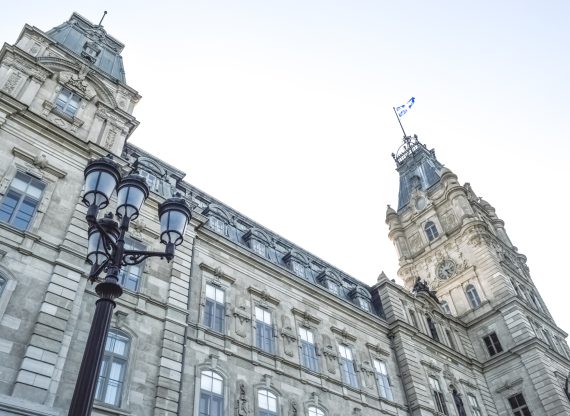Budgetary balance, electricity liberalization, and mini-hospitals: The MEI publishes its pre-budget recommendations for Quebec

Montreal, February 8, 2024 – The Quebec government should stick to its goal of balancing its budget by 2027-2028, recommends the MEI in a brief submitted as part of Quebec’s pre-budget consultations.
“When drafting a budget, it’s prudent to hope for the best, but prepare for the worst,” explains Renaud Brossard, Vice President of Communications at the MEI. “Instead of continuing to borrow more money on the backs of future generations and hoping that interest rates fall quickly, Quebec should plan for a quick return to budgetary balance.”
According to the latest projections, interest payments on Quebec’s debt will reach $11.1 billion in 2027-2028. This represents an increase of 44 per cent over the pre-pandemic level.
In its brief, the Institute notes that the Quebec government has to refinance around $16.5 billion of bonds per year—these days, very often at higher rates.
On the issue of energy, the authors recommend that the government allow independent electricity producers to meet the industrial demand.
“Hydro-Québec simply no longer has the electricity required to meet the demand from the province’s industrial projects,” adds Mr. Brossard. “By letting independent producers complement Hydro-Québec’s supply, we would ensure that Quebec’s development will not be slowed by a lack of electricity.”
The Institute reiterates that last September, due to a lack of electricity, Energy Minister Pierre Fitzgibbon had to reject nearly half of the job-creating projects on his desk.
According to Hydro-Québec’s projections, only 500 megawatts of capacity remain available for industrial production on its network from now until 2028. The projects submitted, on the other hand, would require 30,000 megawatts of capacity.
On health care, the brief recommends that the government go forward with its project to open two independent mini-hospitals.
“The waits that characterize our healthcare system are anything but normal, and they stem from a lack of treatment capacity,” notes Mr. Brossard. “By going ahead with its mini-hospitals project in Montreal and Quebec City, the Legault government would ensure that more patients could be treated, and more quickly.”
The opening of two independent mini-hospitals in Montreal and Quebec was a promise made by the Coalition Avenir Québec during the last election. While these health facilities would be run by independent entrepreneurs, the care they provide would be covered by the Quebec Medicare card, as in the province’s other hospitals.
The Institute notes that healthy competition between care facilities is the norm in many universal healthcare systems around the world, like in France, Germany, and Sweden.
The MEI also recommends the following measures:
- Increasing the flexibility of healthcare professionals in order to ensure better retention;
- Improving access to care through the use of specialized nurse clinics;
- Moving from program review to a spending review;
- Addressing the productivity deficit by reforming the corporate income tax;
- Increasing the province’s electricity supply;
- Ensuring energy security by diversifying our energy mix.
The brief submitted by the MEI is available here (in French only).
* * *
The MEI is an independent public policy think tank with offices in Montreal and Calgary. Through its publications, media appearances, and advisory services to policy-makers, the MEI stimulates public policy debate and reforms based on sound economics and entrepreneurship.
– 30 –
Interview requests
Célia Pinto Moreira
Communications Advisor
Cell: 514 703-0502

